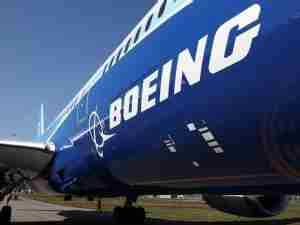What goes up, must come down. What goes up fast must come down even faster. Except Hong Kong property, perhaps.
The breakneck growth of China’s private-sector conglomerates has gone into reverse as authorities recoil at the buildup of debt their overseas shopping sprees have caused. The degree of pain inflicted by that great unwinding depends on the assets being sold. Those that put their money into Hong Kong real estate look to be faring best.
HNA Group Co. is selling two pieces of land at the former Kai Tak airport to Hong Kong-based Henderson Land Development Co. for HK$16 billion ($2 billion). HNA spent about HK$14.2 billion on the two sites, which it bought just over a year ago, Bloomberg News reported Tuesday, citing land registry records.
Prices in the world’s least affordable housing market were already near a record high when HNA outbid Hong Kong developers to buy the first of four plots at Kai Tak in November 2016, paying the most for a piece of government land in more than three years. Yet the conglomerate looks to have done fairly well.
The sale has chalked up a return for HNA of perhaps 10 percent after costs. That’s a result of Hong Kong’s seemingly indestructible property boom—home prices have advanced about 17 percent since November 2016, according to a widely followed index compiled by Centaline Property Agency.
It also partly reflects the generosity of the banks that financed the deals. When HNA bought the first plot, it took out a bridge loan at a cost of only about 2 percent. An extension last year doubled that rate. The sale to Henderson, one of Hong Kong’s biggest developers, comes just as HNA was negotiating a potentially more painful extension. The yield on HNA bonds, which has soared this year, fell after news of the sale.
With HNA facing a potential $2.4 billion shortfall in its ability to pay debt coming due this quarter, it’s little wonder the group is selling. The sprawling conglomerate, which started as a provincial airline operator based on Hainan Island, is said to be targeting $16 billion of disposals in the first half.
The picture is less rosy for HNA’s equally stretched rival Anbang Insurance Group Co., which is in talks to sell hotel businesses including New York’s Waldorf Astoria.
Blackstone Group LP has held initial discussions about bidding for the iconic property , people familiar with knowledge of the matter told Bloomberg News. That’s a bad sign for Anbang’s chances of reaping an acceptable return. A company owned by Blackstone sold the Waldorf Astoria to Anbang for a record price four years ago. It would be unusual indeed if the U.S. private equity firm took a loss in buying it back.
A third “gray rhino,” as the official Communist Party newspaper has described large and dangerous debt-heavy businesses, can thank China’s national team for its rescue. Dalian Wanda Group Co., which has been exiting overseas property forays from the U.S. to Australia, got a $5.4 billion investment in its real estate arm last month from a group led by Tencent Holdings Ltd. That saved it from having to pay out some painful guaranteed returns to investors.
One Chinese conglomerate that looks to be on safer ground is Shanghai-based Fosun International Ltd. It’s back in buying mode after a brief spell on Beijing’s naughty list. The group is poised to buy a majority stake in French fashion house Lanvin, which is facing a cash crunch following a slump in sales, according to Reuters. That deal will presumably fall into the “happiness” section of Fosun’s three-pronged health, happiness and insurance acquisition strategy.
For true happiness in these straitened times, though, it seems there’s nothing like Hong Kong property.
This column does not necessarily reflect the opinion of Bloomberg LP and its owners.







